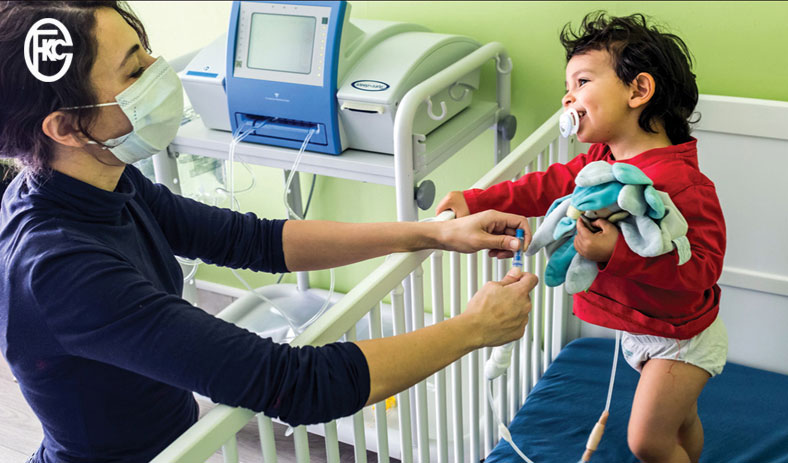
Overview:
Pediatric dialysis is a lifesaving treatment for children with kidney disease. When a child's kidneys are unable to function properly, dialysis helps in artificially carrying out their important functions, such as removing waste and excess fluids from the body. This treatment is crucial for sustaining the child's health and ensuring their overall well-being.
Some Following Ways Understanding the Lifesaving Treatment for Children with Kidney Disease by Pediatric Dialysis:
1. Know the basics of pediatric dialysis:
Pediatric dialysis is a medical treatment that replaces the function of the kidneys in children with kidney disease. It involves removing waste products, toxins, and excess fluids from the bloodstream, maintaining electrolyte balance, and regulating blood pressure.
2. Understand the different types of pediatric dialysis:
There are two main types of pediatric dialysis - hemodialysis and peritoneal dialysis. Hemodialysis involves filtering the blood outside the body using a machine, while peritoneal dialysis uses the lining of the abdomen to filter the blood.
3. Recognize the indications for pediatric dialysis:
Pediatric dialysis is needed when a child's kidneys fail to function properly. This may occur due to conditions such as chronic kidney disease, acute kidney injury, congenital abnormalities, or genetic disorders.
4. Be aware of the goals of pediatric dialysis:
The primary goal of pediatric dialysis is to sustain the child's life by removing waste products and excess fluids. It also aims to maintain electrolyte and acid-base balance, control blood pressure, and promote overall well-being.
5. Understand the preparation for pediatric dialysis:
Before starting dialysis, a child will undergo a series of medical evaluations and tests to assess their overall health, vascular access, and suitability for dialysis. The child may also receive education and counselling to help them understand the treatment process.
6. Know the importance of a multidisciplinary approach:
Pediatric dialysis requires a multidisciplinary team of medical professionals, including pediatric nephrologists, dialysis nurses, dietitians, social workers, and psychologists. This collaborative approach ensures comprehensive care for the child and addresses their physical, emotional, and social needs.
7. Learn about the potential complications and side effects:
Like any medical treatment, pediatric dialysis can have potential complications and side effects. These may include infection at the access site, fluid and electrolyte imbalances, hypotension, anemia, and growth delays. Understanding these risks allows for timely intervention and management.
8. Recognize the importance of a supportive environment:
Pediatric dialysis can be emotionally challenging for both the child and their family. Creating a supportive environment with open communication, emotional support, and access to resources can significantly improve the child's experience and overall well-being.
9. Be informed about the advancements in pediatric dialysis:
Researchers and medical professionals are continuously working on advancing pediatric dialysis techniques and technologies. Stay updated on the latest developments to provide the best possible care for children with kidney disease.
10. Encourage awareness and advocacy:
Pediatric dialysis is a lifesaving treatment for children with kidney disease. Promoting awareness and advocating for access to pediatric dialysis services can help ensure that all children in need receive the treatment they require to live a healthy and fulfilling life.
Conclusion:
Understanding pediatric dialysis is crucial for providing lifesaving treatment to children with kidney disease. By familiarizing ourselves with the basics, different types, indications, goals, and preparations for pediatric dialysis, we can better support and care for these young patients. Staying updated on advancements in pediatric dialysis and advocating for access to these services are essential for improving the lives of children with kidney disease.